Lecture Programme 2021 - 22
2021 – 22 LECTURE PROGRAMME
Introducing the Birmingham & Warwickshire Archaeological Society Lecture Programme for 2021 – 2022. Our lectures are open to members and non-members alike.
Our lectures are FREE for members and members of affiliated societies. Members do not need to book tickets.
When non-member tickets are released, they are available for £5 (+booking fee). You will find links to book tickets on Eventbrite below.
All lectures commence at 7pm unless otherwise stated.
Subject to coronavirus: if physical attendance is not possible, BWAS will make every effort to hold lectures via Zoom.
Tuesday 5th October 2021
Eresh: City of Culture, 2550BC? A Sumerian city in southern Iraq
Speaker: Professor Nicholas Postgate
Venue: Edgbaston Park Hotel
This lecture has now taken place.
Tuesday 16th November 2021
Medieval Archaeology in Birmingham and Warwickshire
Articles published in the Society’s annual Transactions over the past 150 years reflect changing approaches, trends and priorities in the archaeological investigation of medieval Birmingham and Warwickshire. They show how an early and continuing interest in the above-ground archaeology of churches and other medieval buildings was later accompanied by excavations at monasteries, castles, moats, towns and villages, surveys of earthworks and landscapes, research into crafts and industries, and detailed studies of medieval floor tiles and other objects. Join us for this fascinating lecture to find out more.
Speaker: Dr Mike Hodder
Venue: Edgbaston Park Hotel
This lecture has now taken place.
Tuesday 7th December 2021
The Saxon site at Atcham
The great hall near Atcham, Shropshire, identified from the air in 1975, remains a rare example of a type site epitomised at the major Royal centre at Yeavering in Northumberland. Only just over a dozen of these sites are known from England and they remain somewhat enigmatic in their use and purpose. Although the Atcham site was scheduled straight away, recent threats from rabbits and metal detectorists prompted the need for a small-scale excavation of the site to assess its long-term survival. This was also an opportunity to establish its date and character, as well as train the next generation of archaeologists. This lecture presents the results, and establishes the context of the site as it is currently understood.
This lecture will be preceded by the Annual General Meeting.
Speaker: Dr Roger White
Venue: Edgbaston Park Hotel
This lecture has now taken place.
Tuesday 4th January 2022
Stonehenge and its landscape
Stonehenge occupies one of the most intensively studied archaeological landscapes in the world. However, most of this work has focused on the numerous visible monuments, with little attention to the areas between. Recent work focusing on extensive geophysical survey followed by borehole survey and targeted excavation has demonstrated the existence of numerous other, previously unknown monuments, in addition to new evidence for the earlier use of the landscape. This talk will outline the approach and results from this work, highlighting shifts in the interpretation of Stonehenge, in addition to some reflections on methodological approaches to the study of extensive prehistoric landscapes.
Speaker: Professor Henry Chapman
Venue: Edgbaston Park Hotel
This lecture has now taken place.
Tuesday 1 February 2022
The first London-Birmingham railway
Learn about the construction and early years of the London and Birmingham Railway. Felix will trace the history of this huge undertaking through the watercolours and lithographs of John Cooke Bourne (1 September 1814 to February 1896). Cooke Bourne’s pictures illustrate the amount of earth movements necessary to build the railway.
Felix will discuss some of the technologies used in the construction of this first railway to reach London. Felix is neither a historian nor an archaeologist but a railway systems engineer who enjoys talking about the history of railways and its pioneers.
Speaker: Professor Felix Schmid
Venue: Edgbaston Park Hotel
This lecture has now taken place.
Tuesday 1 March 2022
Cheddar Man and the genetic prehistory of Britain
Recent advances in DNA sequencing technology have meant that the analysis of DNA from ancient humans (ancient DNA) has gone from something extraordinary to a routine practise within a decade. We now have genetic information from close to 1000 ancient people who lived in Britain over the last 10,000 years . The majority of these people date to prehistory, and their DNA has provided new insight into the prehistoric inhabitants of Britain. In particular, these results have highlighted the significant role of migration in influencing cultural change and human genetic variation in British prehistory. This talk will discuss what we have learned so far from the genetics of the prehistoric inhabitants of Britain, and where future studies of ancient DNA are likely to take us.
Due to unforeseen circumstances, the speaker will now be joining us on Zoom. The lecture will still take place in person, and we look forward to seeing you at The Edgbaston Park Hotel.
Speaker: Dr Thomas Booth
Venue: Edgbaston Park Hotel
This lecture has now taken place.
Tuesday 5 April 2022
Medieval Graffiti of South Warwickshire Churches
The study of graffiti in churches has become a area of renewed interest recently, with the realisation that probably all English medieval churches once carried examples of these often enigmatic vernacular marks. This talk will consider the survival and the motifs of graffiti in and on churches in the South Warwickshire -North Oxfordshire area. It will cover the possible intentions of the makers, how they made the marks and what class of people they might have been, as well as examining the possible sources and meanings of the marks.
Speaker: David Freke
Venue: St Johns House Museum, Warwick
This lecture has now taken place.
Tuesday 3 May 2022 (12pm start)
A E Everitt, artist and antiquarian: the first Secretary of BWAS
This talk will explore the work of artist Allen Edward Everitt and the formation of the Birmingham Archaeology Society in 1871. Allen Edward Everitt (1824 – 11th June 1882) was an architectural and topographical artist who was interested in the study of buildings considered to be of historical interest as well as buildings which were at risk. Everitt created a phenomenal body of work which documented buildings across Birmingham and the region. This collection is part of the City’s collection of Topographical Views at Birmingham Museums.
Speaker: Jo-Ann Curtis, Curator of History at Birmingham Museums
Venue: Birmingham & Midlands Institute
This lecture has now taken place.
A 17th-century landscape in Malvern Chase
![]()
Tuesday 2nd March 2021 at 7pm
Speaker: George Demidowicz
Anyone walking the Malvern ridge can’t fail to notice the massive bank and ditch called the Red Earl’s ditch or the Shire Ditch that is your constant companion. Having moved to West Malvern five years ago, I was able to explore the northern hills at more leisure and was intrigued to find that a lesser bank and ditch crossed the main ridge at right angles at several locations. Some of these banks and ditches could be then followed for many hundreds of yards.
I checked the published literature and the local Historic Environment Record for any clue as to their origin and purpose, but to no avail. A well-known event, the disafforestation of Malvern Chase in the 1630s, was a possible candidate for their creation, and a subject on which much had been written but without reference to any field evidence. A contemporary map offered the prospect of discovering an extensive and unsuspected layer of the Malvern Hills landscape.
This lecture will take place via Zoom. Members will automatically be sent a link. Any non members wishing to attend should use our contacts page as ask for joining details.
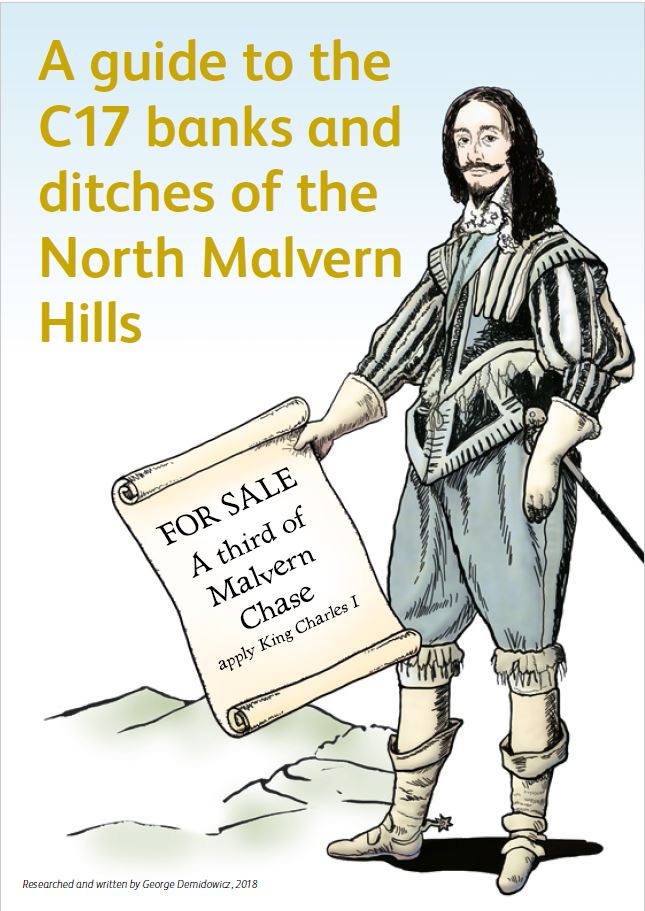
Recent Archaeological Discoveries in the City of Birmingham
7pm Tuesday 2nd February 2021
Speaker: Chris Patrick
Chris Patrick Birmingham City Council’s Principal Conservation Officer will be talking about recent archaeological work and conservation projects in Birmingham including medieval remains in the city centre and prehistoric discoveries in Perry Barr.
This talk will take place via Zoom. Invitations are being sent out to all members with a link to join the meeting. Non-members wishing to attend should make contact via our contacts page and we can send joining details. Numbers will be limited so first come first served.

Lottery success
![]() The Society has been successful in an application to the National Lottery Heritage Fund and has secured a grant to help us explore our future and create a new vision for the way forward. Consultants will be working with us, in this our 150th anniversary year, to develop a diverse range of new activities and events to appeal to a more diverse audience and to attract new members We shall be publishing more information here very soon.
The Society has been successful in an application to the National Lottery Heritage Fund and has secured a grant to help us explore our future and create a new vision for the way forward. Consultants will be working with us, in this our 150th anniversary year, to develop a diverse range of new activities and events to appeal to a more diverse audience and to attract new members We shall be publishing more information here very soon.
New venues for our 2019-20 Lecture Series
Our forthcoming lecture series will take place at the following venues.
Evening lectures in Birmingham (October & December 2019, February, March & April 2020)
Will now take place at The Priory Rooms,Quaker Meeting House, 40 Bull Street, Birmingham, B4 6AF https://www.theprioryrooms.co.uk/find-us/
This venue is very close to the Midland Metro stop in Bull Street and in easy walking distance of the three main Birmingham city centre railway stations and bus stops. There is no car park on site although disabled spaces may be available. We suggest contacting the venue for details in advance if you wish to know more enquiries@theprioryrooms.co.uk 0121 236 2317
Evening lecture In Warwick (November)
This will take place at St John’s House Museum, St Johns, Warwick, CV34 4NF
http://heritage.warwickshire.gov.uk/museum-service/st-johns-house-museum-planning-your-visit/
This venue is located less than 10 minutes’ walk from Warwick railway station. There is a small free car park on site with limited spaces. More parking can be found at St Nicholas Park (sat nav CV34 4NL)
Birmingham Lunchtime Lecture (January)
This lecture will take place at Birmingham Museum and Art Gallery Chamberlain Square, Birmingham, B3 3DH
https://www.birminghammuseums.org.uk/bmag
This venue is close to Victoria Square and a short walk from Birmingham New Street and Snow Hill Railway stations, the Midland Metro and many bus stops. The nearest car park is Town Hall (sat nav B1 1TA) and there is some blue badge parking nearby in Margaret Street and Edmund Street.
Lecture Programme 2019-20
NOTE NEW VENUES FOR LECTURES
Evening lectures are now being held at The Priory Rooms, Quaker Meeting House, 40 Bull Street, Birmingham, B4 6AF.
Except for that on November 5th which will be held at St Johns House Museum, St Johns, Warwick, CV34 4NF.
The Annual Lunchtime Lecture on January 7th 2020 will be held at Birmingham Museum & Art Gallery, Chamberlain Square, B3 3DH
- October 1st 2019 at 7pm Speaker: Stuart Milby
Park Street: The archaeology of a graveyard
- November 5th 2019 at 7pm Speaker: Janine Young
From the Romans to Repton, hollow-ways to hillforts: an overview of archaeology in the National Trust (Warwick meeting)
- December 3rd 2019 at 6.45pm – AGM Speaker: Glenn Rose
HS2 and the research behind the project
- January 7th 2020 at 1pm Speaker: Ellen McAdam
Ancient Mesopotamia: land, monuments and people (Lunchtime)
- February 4th 2020 at 7pm Speaker: Mary Ruddy
Geoarchaeolgy
- March 3rd 2020 at 7pm Speaker: Mike Hodder
Finding more in Sutton Park
- April 7th 2020 at 7pm Speaker: George Demidowicz
A 17th century landscape in Malvern Chase
Barrows and Burnt Mounds: Investigations at Meriden Quarry, 2013-2015
7pm Tuesday 2nd October 2018
Speaker: Richard Bradley
Excavation and watching-brief work by Worcestershire Archaeology over a number of years of quarry extraction has identified multiple phases of activity, mainly of prehistoric date. This has included well-preserved palaeoenvironmental deposits, Mesolithic flint working debris, late Neolithic and Bronze Age burnt mounds associated with a sequence of peat formation, Bronze Age and Iron Age timber lined features, and a monumental complex incorporating a post-built palisade with at least three round barrows. Work at the quarry is ongoing but this talk focuses on discoveries during 2013-2015.
Richard Bradley is a project officer working for Worcestershire Archaeology.
This talk will take place at the BMI
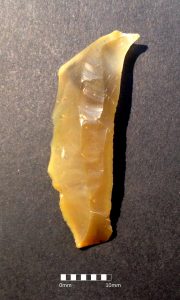
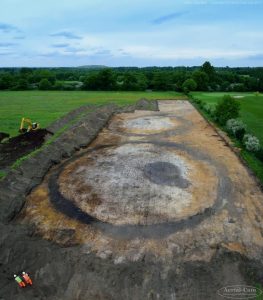
WOW! What a site! An update on the excavation of Roman and Anglo-Saxon cemeteries at Baginton
7pm Tuesday 6th November 2018
Speaker: Nigel Page
An archaeological excavation was carried out on land at Whitley South, Baginton, Warwickshire in 2017, on high ground overlooking the River Sowe and Coventry to the North. The excavation revealed a series of possible Neolithic pits with flint artefacts, a Bronze Age round barrow, a Roman cremation cemetery and houses and a small cemetery of Anglo-Saxon date.
The Roman cremation cemetery contained over 60 burials, some with offering pots, personal items and cremation urns, which was likely to have been associated with the Lunt Roman Fort, c.350m to the west.
Remains of five Anglo-Saxon houses and twelve burials were also recorded. Some of the graves contained grave goods, which included complete pots and a hanging bowl.
Conservation work on the numerous metal objects recovered has revealed not only how they would have looked when made and used, but it has also thrown up some surprises.
This talk will take place at the Market Hall Museum in Warwick
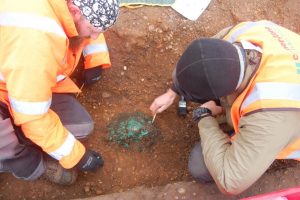
The Ice Age and Palaeolithic West Midlands a.k.a The Original West Midlands Safari Park
AGM Night
Tuesday 4th December 2018 6.45pm
Speaker: Nick Daffern
The West Midlands is often overlooked in favour of the east and south-east of England but this talk aims to show that the West Midlands has an incredibly important part to play in the story of Britain during the Pleistocene!
The talk will look at the fascinating Ice Age history of the West Midlands covering its climate and landscape over the last one million years and the animals and humans (both archaic and modern!) who lived and hunted here. An overview will be given of the results of a 2013 English Heritage-funded reassessment of the Palaeolithic in Worcestershire ‘which (excuse the pun!) has snowballed into research that has implications for the wider West Midlands and the potential for future work that everyone can get involved in to enhance our understanding of these lost landscapes.
This lecture will take place at the BMI
Note - this lecture will be preceded by the BWAS Annual General Meeting and should commence shortly after 7pm.
Nick Daffern is an archaeologist, palynologist (pollen specialist!) and environmental archaeologist with a particular focus and passion for the Pleistocene of the West Midlands. He is Associate Director for Archaeology and Heritage at Wardell Armstrong
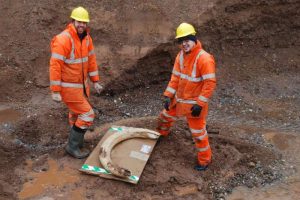
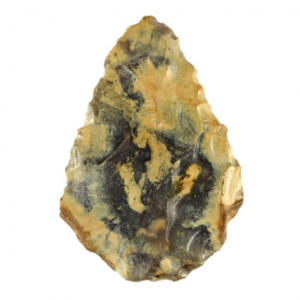
Digging HS2
ANNUAL LUNCHTIME LECTURE
Tuesday 8th January 2019 at 1pm
Speaker Robert Early
The north section of HS2 spans 87 km, and forks into Birmingham. The whole project is the largest historic environment project undertaken in the UK and as such represents a huge challenge to the professional archaeological community. This talk will highlight how the teams of archaeologists are undertaking the works, focussing on new discoveries and the excavation of known sites such as Park Street Burial ground where 19,000 post-medieval burials are currently being excavated; the largest archaeological project to date in Birmingham. Rob will provide a resume of research undertaken and the results to date highlighting some of the challenges ahead.
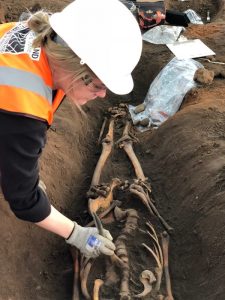
Rob Early is currently the lead for the Historic Environment section North. He has over 30 years of experience in archaeology and heritage and has a number of publications of his work that range through the prehistoric periods through to Second World War. He currently leads the heritage team at the design engineering company WSP but formally worked for Oxford Archaeology.
This lecture will take place at the BMI.
